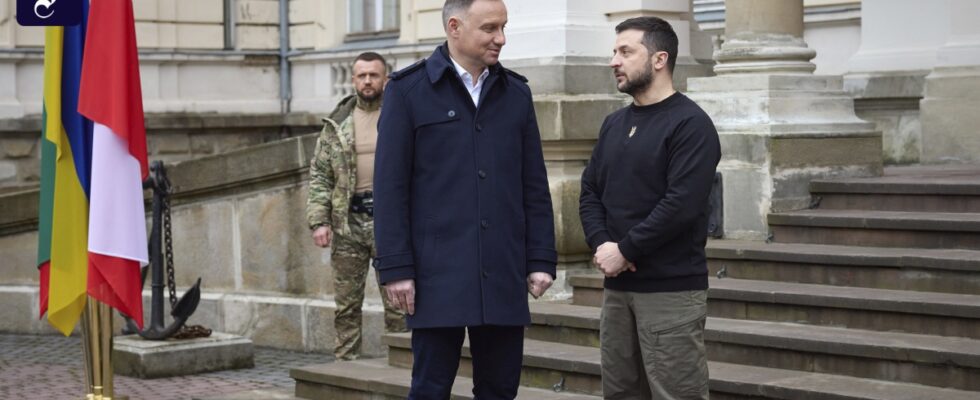IIn the weeks leading up to the Ramstein meeting, the Polish government tried to systematically increase pressure on the German government to agree to the delivery of Leopard 2 main battle tanks to Ukraine. Prime Minister Mateusz Morawiecki made a start in the first week of the new year when he spoke – still relatively cautiously – about Poland’s willingness to supply some of its own Leopard tanks to Ukraine as part of an international coalition.
In the middle of last week, President Andrzej Duda said that Poland had decided to hand over a company of its Leopard 2 to Ukraine. This pledge was given special symbolic weight by the fact that Duda made it in Lemberg in western Ukraine alongside Ukrainian President Volodymyr Zelenskyy. His message was essentially the same as Morawiecki’s a few days earlier. Duda also made the delivery of tanks dependent on this being done within the framework of an international alliance. But the accent was now different, especially since spokesmen for the Polish leadership spoke of intensive talks being held about the formation of such a coalition.
“They are also very high on the list of Russian targets”
Morawiecki then took the next step when he spoke on Monday in Berlin at a ceremony of the CDU/CSU parliamentary group in honor of Wolfgang Schäuble, who has been a member of the Bundestag for 50 years. Even before he left Warsaw, he had announced that he wanted to talk to various German politicians in Berlin about battle tanks for the Ukraine.
He indirectly addressed the debate, which was particularly pronounced in Germany, that the delivery of such weapons could lead to a further escalation of the war: “A defeat in Ukraine could be the prelude to a third world war,” Morawiecki countered. All kinds of weapons should be supplied to Ukraine. Morawiecki went one step further in Warsaw on Wednesday. He said Poland would continue to put pressure on the Chancellery and indicated that if necessary Poland could hand over the tanks to Ukraine without permission from Berlin: “Either we get them quickly or we act ourselves as necessary.”
Other Polish politicians have since made similar comments. In a radio interview on Friday morning, Deputy Foreign Minister Paweł Jabłoński responded to the question of what would happen if Germany did not give its consent: Then one was also prepared to take “unusual” actions, “even if someone would be offended by it” – left but open what that means.
The goal, however, is “that as many states as possible work together with us to successfully influence Germany”. In the interview, Jabłoński also explained why Poland is so keen on Ukraine receiving modern battle tanks: “It is above all in our interest that the Russian attack in Ukraine is repelled, because we are also very high on the list of Russian targets.” The faster and the more tanks Ukraine receives, “the safer Poland will be as well.”
The shrill anti-German tones that are otherwise characteristic of representatives of the national-conservative governing party PiS were missing in the criticism of leading Polish government politicians of the hesitant German attitude to the Leopard delivery to Ukraine. The PiS foreign policy spokesman, Radosław Fogiel, expressed concern on Thursday that “the German calculation is based on the hope of returning to cheap trading in Russian gas”. The Germans must always be “motivated” and “pushed”, which is irritating and dangerous from the point of view of Ukraine’s security. However, such words could also come from politicians from the pro-European parties in the Polish parliament, right down to the left.
